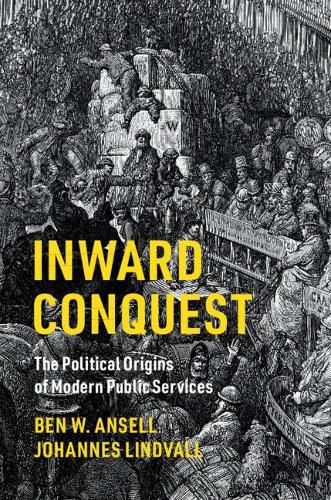Readings Newsletter
Become a Readings Member to make your shopping experience even easier.
Sign in or sign up for free!
You’re not far away from qualifying for FREE standard shipping within Australia
You’ve qualified for FREE standard shipping within Australia
The cart is loading…






In the nineteenth and early twentieth centuries, modern states began to provide many of the public services we now take for granted. Inward Conquest presents the first comprehensive analysis of the political origins of modern public services during this period. Ansell and Lindvall show how struggles among political parties and religious groups shaped the structure of diverse yet crucially important public services, including policing, schooling, and public health. Liberals, Catholics, conservatives, socialists, and fascists all fought bitterly over both the provision and political control of public services, with profound consequences for contemporary political developments. Integrating data on the historical development of public order, education, and public health with novel measures on the ideological orientation of governments, the authors provide a wealth of new evidence on a missing link in the history of the modern state.
$9.00 standard shipping within Australia
FREE standard shipping within Australia for orders over $100.00
Express & International shipping calculated at checkout
In the nineteenth and early twentieth centuries, modern states began to provide many of the public services we now take for granted. Inward Conquest presents the first comprehensive analysis of the political origins of modern public services during this period. Ansell and Lindvall show how struggles among political parties and religious groups shaped the structure of diverse yet crucially important public services, including policing, schooling, and public health. Liberals, Catholics, conservatives, socialists, and fascists all fought bitterly over both the provision and political control of public services, with profound consequences for contemporary political developments. Integrating data on the historical development of public order, education, and public health with novel measures on the ideological orientation of governments, the authors provide a wealth of new evidence on a missing link in the history of the modern state.